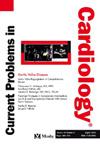瑜伽在肥胖管理:降低心血管风险和提高健康-当前文献综述。
IF 3.3
3区 医学
Q2 CARDIAC & CARDIOVASCULAR SYSTEMS
引用次数: 0
摘要
背景:肥胖是一种全球性流行病,显著增加心血管疾病(CVD)的风险。常规治疗往往缺乏长期疗效,强调需要综合的、可持续的方法。目的:本综述评估瑜伽在肥胖管理中的辅助干预作用及其在降低心血管风险方面的有效性。方法:系统回顾Medline/PubMed、Scopus、Embase和Cochrane中央图书馆截至2024年3月的文献。重点是随机对照试验(rct)、观察性研究、系统评价和荟萃分析,以评估瑜伽对肥胖相关结果和心血管风险因素的影响。研究回顾了瑜伽对肥胖个体的质量、结果以及生理和心理影响。结果:瑜伽干预在降低身体质量指数(BMI)、腰围和体脂方面持续产生积极的结果。这些生理变化与心血管指标的显著改善相关,包括血压、胆固醇水平、内皮和自主神经功能。瑜伽还能增强压力管理和心理健康,从心理和生理两方面解决肥胖问题。它的好处不仅仅是减轻体重,还能影响全身炎症和代谢健康,这对降低心血管疾病风险至关重要。结论:瑜伽代表了一种很有前途的、非药物的方法来控制肥胖和降低心血管疾病的风险。它对身体和心理健康的整体影响使其成为全面肥胖管理的可行辅助疗法,促进可持续的生活方式改变和长期健康益处。意义:将瑜伽纳入标准肥胖管理方案可以提高治疗效果。未来的研究应该规范瑜伽干预措施,以更好地将其融入现代医疗保健,并探索其对心血管的长期影响。本文章由计算机程序翻译,如有差异,请以英文原文为准。
Yoga in Obesity Management: Reducing cardiovascular risk and enhancing well-being- A review of the current literature
Background
Obesity, a global epidemic, significantly increases cardiovascular disease (CVD) risk. Conventional treatments often lack long-term efficacy, emphasizing the need for integrative, sustainable approaches.
Objective
This review assesses the role of yoga as a complementary intervention in obesity management and its effectiveness in reducing cardiovascular risk.
Methods
We systematically reviewed literature up to March 2024 from Medline/PubMed, Scopus, Embase and the Cochrane Central Library. The focus was on randomized controlled trials (RCTs), observational studies, systematic reviews and meta-analyses evaluating the impact of yoga on obesity-related outcomes and cardiovascular risk factors. Studies were reviewed for quality, outcomes, and both physiological and psychological effects of yoga on obese individuals.
Results
Yoga interventions consistently yielded positive results in reducing body mass index (BMI), waist circumference, and body fat. These physical changes correlate with significant improvements in cardiovascular markers, including blood-pressure, cholesterol levels, endothelial and autonomic functions. Yoga also enhances stress management and psychological well-being, addressing both mental and physical facets of obesity. The benefits extend beyond mere weight reduction, affecting systemic inflammation and metabolic health, crucial for mitigating CVD risks.
Conclusion
Yoga represents a promising, non-pharmacological approach to obesity management and CVD risk reduction. Its holistic impact on physical and psychological health makes it a viable adjunct therapy in comprehensive obesity management, fostering sustainable lifestyle changes and long-term health benefits.
Implications
Incorporating yoga into standard obesity management protocols could enhance therapeutic outcomes. Future research should standardize yoga interventions to better integrate them into modern healthcare and explore their long-term cardiovascular effects.
求助全文
通过发布文献求助,成功后即可免费获取论文全文。
去求助
来源期刊

Current Problems in Cardiology
医学-心血管系统
CiteScore
4.80
自引率
2.40%
发文量
392
审稿时长
6 days
期刊介绍:
Under the editorial leadership of noted cardiologist Dr. Hector O. Ventura, Current Problems in Cardiology provides focused, comprehensive coverage of important clinical topics in cardiology. Each monthly issues, addresses a selected clinical problem or condition, including pathophysiology, invasive and noninvasive diagnosis, drug therapy, surgical management, and rehabilitation; or explores the clinical applications of a diagnostic modality or a particular category of drugs. Critical commentary from the distinguished editorial board accompanies each monograph, providing readers with additional insights. An extensive bibliography in each issue saves hours of library research.
 求助内容:
求助内容: 应助结果提醒方式:
应助结果提醒方式:


